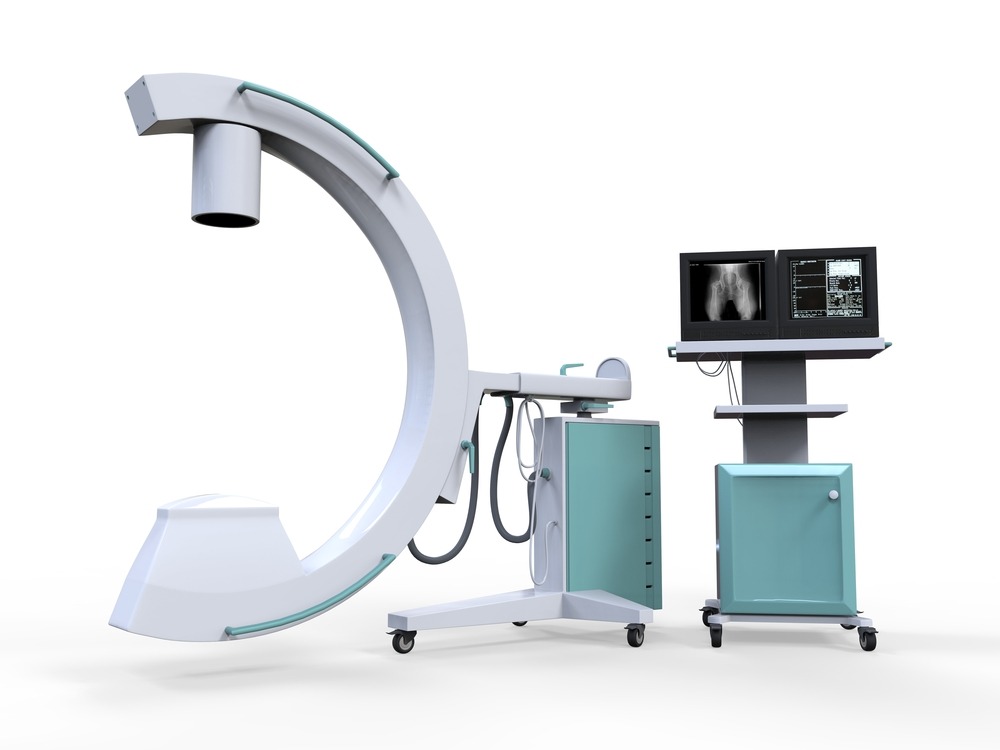Healthcare with Confidence
Prostate cancer is the most common men’s cancer. It is different from most other types of cancer, it develops slowly and can be inactive for many years.
Risk factors can lead to the occurrence or progression of prostate cancer. This may be: hereditary or genetic mutations, age and nutrition.
⇒ Learn more about risk factors of prostate cancer
The symptoms in cases of a benign enlargement and malignant growth of the prostate gland may appear as:
- Increased urination
- Pain during urination
- Blood in urine or during sexual intercourse (rarely)
- Pain in bone, the back, hips or pelvis, when cancer has metastasized.
We select a narrow-profile doctor for the treatment of prostate cancer. This makes the treatment as effective as possible and it helps to improve the life quality of our patients.
Israeli medical experts in prostate cancer

Dr. Raanan Berger – Head of the Cancer Institute, Head of Clinical Research, Medical Center, Chaim Sheba Tel Hashomer.
 Dr. Zohar Dotan – Urology Expert, Senior surgeon, Head of the oncourology service at Sheba Medical Center, Tel Hashomer
Dr. Zohar Dotan – Urology Expert, Senior surgeon, Head of the oncourology service at Sheba Medical Center, Tel Hashomer
 Dr. Yaron Erlich
Dr. Yaron ErlichHead of the Urology Unit at Sharon Hospital (Beilinson). Prostate Cancer Specialist.
Senior Physician, Urology Department, Rabin Medical Center. Head of the Oncourology Department.
To get a Second Opinion Online
Prostate cancer diagnosis
♦ Digital Rectal Exam (DRE). During this procedure doctor examines the condition of the prostate by palpating it through the rectum wall. This allows to evaluate benign enlargement or identify prostate cancer. It is the most inaccurate method.
♦ Laboratory analysis of blood, including the PSA level (prostate-specific antigen, a protein produced by the prostate gland in case of illness)
♦ Transrectal ultrasound test (TRUS) and prostate tumor biopsy. The procedure is performed under local anesthesia and it is guided by the supervision of ultrasound small sensor located in the rectum. Tiny needle is inserted through the wall of the anus and a small tissue sample is taken from the prostate gland.
♦ Target biopsy using a combination of MRI and ultrasound («fusion biopsy»). This allows to increase the accuracy of taking a biopsy using a three-dimensional model of the prostate, and to move from a systematic screening to a point check-up, when it’s necessary.
♦ CT and PET-CT using GA68 isotope for abdomen, pelvis and thorax.
♦ Magnetic resonance imaging (MRI scan). This uses a magnetic field to construct body images in cross section. MRI helps to assess progression of prostate cancer and to detect metastases to nearby tissues or lymph nodes.
♦ Bone scanning. A bone scan test helps to diagnose tumorous areas, when prostate cancer has spread beyond the gland. As a rule, a cancerous tumor absorbs a larger amount of radioactive material then other bone parts.
♦ Onco-tests for personalized treatment using biomarkers in blood sample:
- 4KScore
- Decipher Prostate
- Onco-test ProMark Prostate
- Onco-test Prolaris Prostate
- Onco-test Oncotype DX Prostate
⇒ More details about diagnosis o prostate cancer in Israel
Stages of prostate cancer
There are several stages of prostate cancer:
♦ Early prostate gland carcinoma (localized prostate cancer), the tumor is located in the prostate gland (capsule) and does not extend into the surrounding tissue or other parts of the body.
♦ Locally advanced prostate cancer – cancer cells have spread to tissues around the prostate gland.
♦ Advanced or metastatic prostate cancer – cancer has spread beyond the prostate to other parts of the body. Cancer cells can sometimes spread in the blood. Once these cells reach a new area of the body, they can continue dividing and create tumor formation called metastasis. The most common sites of spread of prostate cancer are spine bones, pelvis, hips and ribs.
In some cases prostate cancer may affect bone marrow and lymph nodes, and sometimes it is spreading to the lungs, brain and liver.
Oncologists also use the TNM system to classify the stage of prostate cancer. It describes the tumor spread and metastases within the body. In addition, our Israeli doctors use Gleason index to assess the rate of the disease progression. Learn more about TNM system and the Gleason Index
Prostate cancer treatment
Active watching, observation
At an early stage, sometimes there is no treatment, and doctors monitor patients for performing regular tests and inspection. As prostate cancer has very slow progression, the tumor size is small and there are no risk factors, it usually does not cause problems in the future. In Israel, about a third of patients are monitored by active watching.
Sometimes prostate cancer treatments can cause side effects such as erectile dysfunction or urinary incontinence. It has more serious consequences in some cases than the disease itself. Treatment starts when the disease begins progressing, and the tumor is greatly increased. Only then cancer therapy is effective.
Israeli modern medicine provides new technology for early determination of prostate cancer using blood samples and biopsy. Only an experienced doctor can evaluate the patient risks and prescribe the required treatment at the right time. Israeli onco-urologists have extensive experience in prostate cancer treatment. They are regular participants in international conferences and they use the latest technologies in their practice, such as personalized tests, cryotherapy, brachytherapy, HIFU and others. Learn more about doctors and their methods
Surgery
♦ Radical prostatectomy
Surgery, in which the entire gland is removed through an incision in the abdomen or incision between the scrotum and the anus. Performed in cases where the cancer has not spread in the body (no metastases)
Removal of the entire gland helps stop the spread of early cancer in the body and can lead to a cure. As with any surgery, with radical prostatectomy there are risks such as bleeding problems or infections. But due to present knowledge of surgeons and technology risks of such complications is very small.
♦ Laparoscopic radical prostatectomy
Endoscopic surgery in which the surgeon uses a specially designed tools inserted through small puncture 4 in the abdomen. In the body the carbon dioxide gas is supplied to fill the stomach. A tiny video camera shows the prostate gland in a larger size on the video screen.
♦ Robotic laparoscopic radical prostatectomy (Da Vinci robot)
Sometimes LRP can be carried out using a robot. Manufactured robots for laparoscopic prostatectomy machine called da Vinci ® – so this type of surgery called da Vinci prostatectomy. This operation is used only by specially trained physicians.
Operating DaVinci robot enables precision surgical manipulations to do, due to the flexibility of robotic instruments and the possibility of their turnover by 360 degrees. Instead of moving cameras and instruments the surgeon or assistant joined robotic arms that move very delicately, stable and accurate (unlike human hands).
After radical prostatectomy in a few days set drip intravenous infusion into a vein in the arm and the tube (catheter) to drain urine from the bladder and fluids from surgical wounds. In few days catheter is removed. On the operational period the doctor prescribes pain relief and antibiotics.
Hospitalization for such operations may be 3-7 days, depending on the complexity of the operation and patient condition.
New mini invasive treatment
Radiation Therapy
Radiotherapy – the influence on the body a high energy X-rays or electron beams to kill cancer cells. External radiation therapy is usually daily sessions from Sunday to Thursday, with a rest at the weekend. Typically, radiation therapy lasts 4-8 weeks.
Before the procedure, performed CT-simulation modeling process where determined destination spot beams for irradiation. The computer program determines the exposure for each person individually.
Conformal radiotherapy (CRT) and intensity modulated radiotherapy (IMRT) may be applied for prostate cancer treatment.
When conformal therapy (CRT) with the construction of 3D images is used, the computer generates radiation beams carefully so as to conform to the shape of the prostate gland, thereby reducing the likelihood of damage normal cells in neighboring organs such as the bladder and rectum. This approach reduces the side effects of radiation therapy and allows to deliver the highest possible dose to the cancer cells. This is the most effective method.
- IMRT (Intensity-modulated radiotherapy) – This method directs the energy beams more precisely than conformal radiation therapy, and allows the use of different doses of radiation to different areas of the patient’s organ. The TomoTherapy® device combines IMRT with a CT scan to make the treatment more precise. In this method, the radiation beams are directed to match the shape of the prostate gland precisely. This reduces the radiation absorbed by healthy cells and organs adjacent to the prostate, such as the bladder and rectum. A new development of IMRT is Rapid Arc Radiation. This technique shortens the performance of lMRT-n to several minutes instead of about half an hour.
- VMAT (Volumetric-Modulated Arc Therapy) – A technological refinement of the IMRT method in which radiation is administered using arcs created by rotation of the accelerator head. The method allows for great precision and shortens the duration of treatment.
- SBRT (Stereotactic body radiation therapy) – This method provides targeted radiation therapy to the prostate gland using several radiation fields, with strict control so that the radiation doses to which the rectum and bladder are exposed are minimal and below the tolerance threshold. The method allows for the administration of a high dose of radiation in a single dose or in a small number of treatments (usually 5-6 treatments), compared to conventional radiation therapy, which is given in a large number of low daily doses spread over several weeks.
- (IGRT (Image-guided radiation therapy) – Image-guided radiation therapy, which allows for the most precise treatment. Just before or during radiation therapy, images are taken that are used to adjust the radiation to the treatment area, and for maximum accuracy of the treatment.
- SABR (Stereotactic ablative body radiotherapy) – Minimally invasive radiation therapy, which allows for the delivery of large amounts of radiation to small areas with great precision, is sometimes used to treat prostate cancer.
Radiation treatments using the various techniques are not recommended in patients with chronic inflammatory bowel diseases, in patients with urinary disorders or in patients with an extremely large prostate.
Proton radiation therapy. It combines various types of x-rays and delivers the exact dose to the desired area very precisely.
⇒ Learn more about the different types of radiation therapy in Israel
Side effects of radiotherapy may be:
- fatigue
- irritation of the rectum
- pain around the anus
- bladder inflammation (cystitis )
- burning sensation when urinating
Patient must follow the recommendations of the attending physician to mitigate and manage side effects. During this period it is also important to drink plenty of liquids.
Brachytherapy
This type of radiation therapy is named internal radiation therapy or implant therapy.
There are two ways to provide brachytherapy:
- Low dose rate brachytherapy – This way uses the “grain” of radioactive metals, which are implanted into the tumor, slowly releasing its radiation. The particles are not removed within six months when the radiation gradually disappears.
- High Dose Rate Brachytherapy – This method consists of placing a tiny plastic catheters into the prostate gland. Radioactive seeds are inserted into a catheter during a certain period of time and then removed. After treatment the catheters can be easily removed and the radioactive material remains in the prostate gland.
Brachytherapy is a simpler procedure than the external radiation therapy. Usually it includes one simulated session and one treatment session only.
This treatment may not be suitable for some men with very large prostate. Nevertheless, in some cases hormone therapy can be assigned to reduce prostate size before brachytherapy.
The side effects of brachytherapy are similar to the side effects of radiation therapy. Most men return to their normal activities within 1-2 weeks after treatment.
Hormone therapy
Typically, hormone therapy is prescribed before radiotherapy. This is called neo-adjuvant therapy, contributing to make radiation therapy more effective. Sometimes hormone therapy is also appointed after radiotherapy. In this case, its purpose is to decrease the likelihood of cancer recurrence.
Hormones control the growth and activity of normal cells. Prostate cancer depends on the hormone testosterone. Hormonal therapy is aimed to reduce this man hormone in the body. It is administered as an injection or tablets.
Hormone therapy alone does not cure prostate cancer, but studies have shown that it can reduce the risk of early prostate cancer coming back when given in combination with other treatments, and it can also reduce the volume of an advanced tumor or slow its growth.
Hormone therapy can be given in the following situations:
- For men who are not suitable for surgery or radiation therapy;
- Before radiation therapy to help shrink the tumor;
- In combination with and during radiation therapy, to reduce the risk of the disease coming back;
- If the tumor does not go away or comes back after surgery or radiation treatment.
Types of hormone therapies:
- Orchiectomy – in cases of locally advanced or metastatic prostate cancer. Although it is a surgical procedure, it is considered hormone therapy because it removes the main source of testosterone production: the testicles. This is a simple operation in which a small incision is made in the scrotum (the sac that holds the testicles) and the part of the testicle that produces testosterone is removed. After this operation, which is performed under general or local anesthesia, the scrotum becomes smaller. Sometimes both testicles are removed entirely. Orchiectomy is just as effective as hormone therapy in suppressing pituitary activity, but it eliminates the need for repeated injections. The surgery has immediate effects, such as mild pain, swelling, and bruising in the scrotum, as well as side effects similar to hormone therapy, such as hot flashes and impotence.
- LHRH/GnRH hormone blockers of the agonist type (agonists). Agonists are drugs that block the message from the brain to the testicles to produce testosterone, thus preventing its production. This causes the cancer cells to grow more slowly or stop growing, and the tumor may shrink. This is sometimes called ‘chemical castration’. The goal of treatment is to lower testosterone levels below the ‘castration level’ of 50 ng/ml. The effects of agonists are usually reversible, so testosterone production usually resumes after treatment is stopped. Testosterone recovery can take anywhere from 6 to 24 months. In a small number of patients, testosterone production never returns. LHRH agonists are injected or placed as small implants under the skin. Depending on the type of drug, they may be given once a month or once a year.These drugs include: Leuprorelin acetate (Eligard®, Lucrin®)*, Goserelin acetate (Zoladex®)*, Triptorelin acetate (Decapeptyl®)*.
- Anti-androgens – while LHRH agonists and antagonists lower testosterone levels in the blood, anti-androgen drugs block testosterone from binding to androgen receptors, which are chemical structures in cancer cells that allow testosterone to enter the cell. Antiandrogens are given as tablets, and the most common are: Bicalutamide (Casodex®)*, and Flutamide (Eulexin®)*. Newer drugs of this type include Enzalutamide (Xtandi®)*, Apalutamide (Erleada®)*, and Darolutamide (Nubeqa®)*. The drug Abiraterone Acetate (Zytiga®)* blocks an enzyme called CYP17, thus stopping the production of testosterone in the adrenal gland cells and tumor cells. The drug is given as a tablet that is taken every day in combination with the steroid drug prednisone, to prevent some of the side effects of abiraterone. The drug is included in the health basket for metastatic castration-resistant cancer.
Immunotherapy
Immunotherapy of prostate cancer is a treatment with drugs that activate the human immune system to fight cancer cells of the prostate tumor.
Precision treatment
Personalized or precision medicine is increasingly being used in Israel.
Molecular oncotests help our doctors select an individual treatment protocol for each patient, as a result of which the tumor’s genetic profile is compiled.
⇒ All Molecular Oncotests for Personalized Treatment in Israel – Overview
In addition to general molecular tests, Israel also conducts tests for precision treatment of prostate cancer:
- Decipher prostate
- ProMark Prostate Oncotest
- Oncotest Prolaris Prostate
- Oncotype DX Prostate
Due to the definition of prognostic biomarkers, these oncotests help our doctor understand how prostate cancer will develop over time. As a result, it will be possible in time to switch from active observation to choosing the right treatment.



